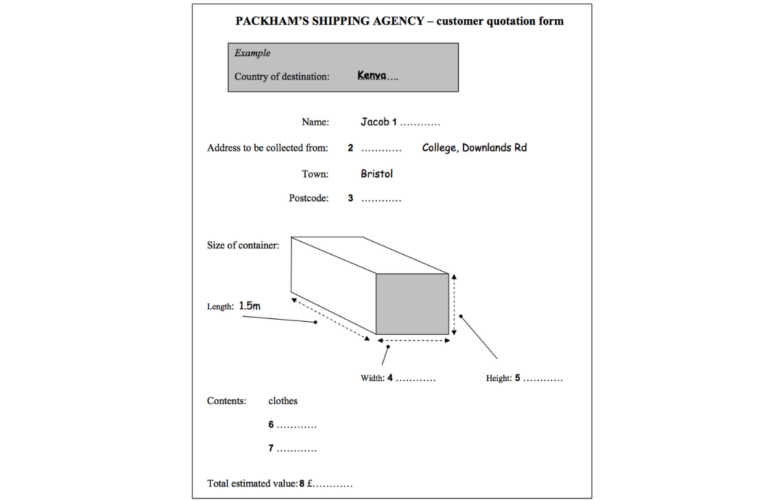IELTS Listening Course
-
Welcome to the listening course
-
Introduction to the listening test
Introduction to the listening test -
Listening questionsForm completion
-
Short answer
-
Multiple choice
-
Labelling questions
-
Matching questions
-
Note and Sentence Completion
-
Listening TestsFull Listening Test
-
End of the listening courseEnd of the course, what's next...
- 30 minutes
In this lesson, we focus on form completion questions. Below, we outline our strategy as well as giving you practice activities to help you prepare for the reading test.
Slow video loading? View the Alternative Video Source
Lesson Material
The first part of the listening test is usually a form completion task.
Tasks
Complete a form with words you hear in the recording. You will hear two people speaking- usually a man and a woman.
Example

Strategy
Often this will say ‘No more than two words and/or a number’. This means that you can write:
- One word: hospitals
- Two words: local hospitals
- A number: 60
- Two words and a number: 60 local hospitals
Remember to read these instructions carefully.
You should underline keywords that will help you to understand the form. You have time to do this before the recording starts.
For example, in the form completion activity above we can predict
- Surname
- Name of College
- Postcode
- measurement (probably in metres or centimetres because the length is in metres)
- measurement
- Item that can fit in a box
- Item that can fit in a box
- Amount of money
All of the questions appear in the same order as the recording. Make sure to read all of the questions before the recording starts. This way, if you miss the answer to a question, you will not be waiting for the answer and, as a result, miss the answers to the following questions.
Also, while you listen be aware of the following question because often the answers to multiple questions can come in a short period of time.
The answers are not evenly spaced in the recording. For example, you might be waiting for one minute, and then the answer for two questions comes in a space of ten seconds. Be ready to answer more than one question at a time by writing the answer quickly on your question paper (you can copy this to your answer sheet after the recording).
IELTS pro tips
- Telephone numbers:
- Native speakers often say ‘oh’ instead of ‘zero’*.
- Native speakers often group numbers together: ‘double three’= 33, ‘triple 9’= 999
It is very common in form completion questions to have to listen to the spelling of difficult surnames or places. Make sure you are familiar with the sound of all of the letters.
House/Flat number
Street name
Town/City name
Postcode*
*Postcodes are usually written like this ‘SW9 9SZ’

